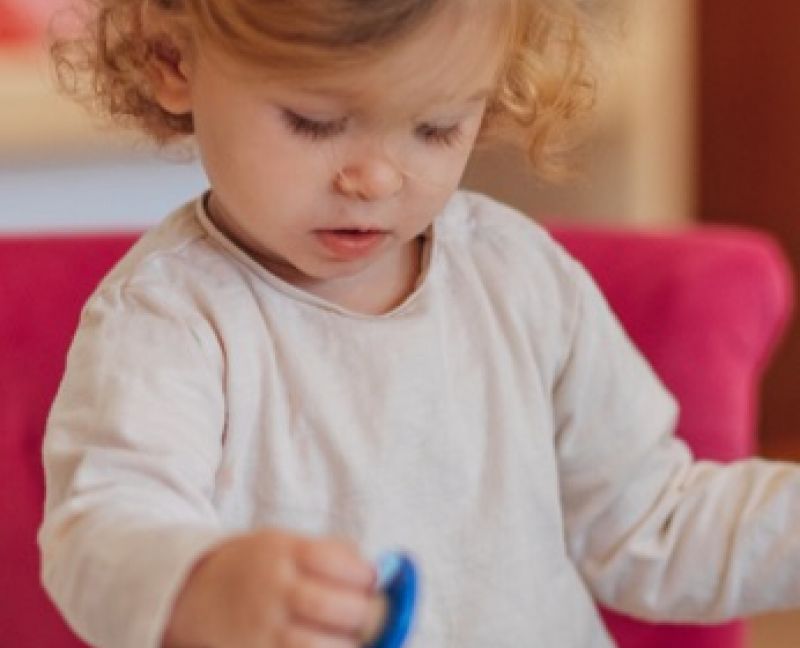Often, I am asked by mums and dads if their child’s dummy use has caused their child’s speech problems. It seems as though a child’s use of a dummy has been added to the ‘parent guilt’ list.
Whether you call it a dummy, pacifier, soothie, dum dum… a dummy goes by many different names, but the one thing that remains the same is that it can play an important role in the life of a baby, a toddler, or even parents. Often the dummy does exactly what it is designed to do; it helps to settle your child.
Below is a list of the positive and negative effects of using a dummy.
Positive Effects:
- Provides a source of security to an infant and increases sucking satisfaction.
- Sucking can have a soothing effect for babies
- It is a common substitution for a mother’s breast or baby bottle for the purpose of comforting and settling a newborn.
- There is research to suggest that there is a decrease in the risk of SIDS if a baby uses a dummy. A baby who sleeps with a dummy doesn’t often sleep as soundly as one without a pacifier, making it possible for the baby to wake up from a deep sleep that might result in stopped breathing.
- Allows a baby to suck without ingesting food or liquid.
- It is an easier habit to break than thumb-sucking.
Negative Effects:
- Toddlers can become dependent on dummies
- Can cause alignment problems with the teeth or developing bone in the mouth after age two.
- Can cause problems with proper development of the mouth and changes in the shape of the roof of the mouth with prolonged use. Poor dental development is also linked to speech errors/difficulties. Causes misaligned teeth (dental malocclusions) in 60% of children.
- Dummy use has been linked to an increase in respiratory infections and ear infections.
- Can limit babbling and imitation of sounds and words.
- Can distort vocalizations while held in the mouth or may keep a child from attempting to speak at all.
- May interfere with breastfeeding, as a different sucking technique is required
So, what does the research say?
The University of Sydney found in their research gat bottles, dummies and thumb sucking in the early years of life do not cause or worsen phonological impairment, the most common speech disorder in children.
Dr Elise Baker, a speech pathologist at the University of Sydney stated that “The findings suggest that for the majority of children with speech delay the problem is not to do with the mouth, but rather associated with how children learn the sound system of language.”
As a speech pathologist I suggest to families that dummy use should be limited with breast-feeding infants, stopped altogether by the age of 2-3 (to limit the effects on dentition), avoided in infants and children with a history of repeated middle ear infections and conductive hearing problems. Dummies should be restricted to certain times of the day, for example rest time. It is important that a dummy is not used when your child is playing or socially interacting, as we don’t want to limit your child’s communication attempts or clarity of speech.
Using a dummy safely
- Restrict use to when the infant is falling asleep.
- Always keep the shield on the outside of the lips. Severe lacerations can occur if the shield is held inside the lips.
- Do not place a cord around the child’s neck to hold a dummy. Do not attach the dummy to the child’s clothes, as this can be a choking/strangulation risk.
- Look for a dummy with ventilation holes in the shield. These will let air pass through if the dummy accidentally becomes lodged in your child’s throat.
- Select a dummy with a symmetrical nipple. This permits the dummy to remain in the correct sucking position.
- Dispose of the dummy after use; it is not sanitary to keep or give it away.
Tips to ditch the dummy
- Limit the dummy use by keep it out of sight -out of sight, out of mind.
- Leave them behind on a trip.
- Take them away “cold turkey.”
- Dip them in white vinegar or lemon juice, making them unappealing.
- Make sure everyone is onboard, including caregivers, grandparents, siblings and educators.
- Offer alternative comforts, such as rocking, soft singing, and gentle massage.
- Explain to the child that there is another baby who needs the dummy more and make an event
- of gathering up all of the dummies and putting them in a box to “give away.” Give the child lots of praise for being so generous and for being a “big kid.”
- Introduce and stage a visit from the Binky Fairy. Explain to the toddler that the Binky Fairy will
come whenever he or she is ready to give up his or her dummy. Collect all dummies and put them in a box or fancy basket on the doorstep. After the production, the Binky Fairy will “pay a visit” to take the dummies away and leave a toy or treat in their place.
If you are worried about your child’s dummy use and think that it is impacting their speech and language feel free to contact us at Andrea Cooper Speech Pathology by emailing [email protected] or calling 0468606812.
To read more about the study by the University of Sydney, please follow this link.
Happy Talking,
Andrea
